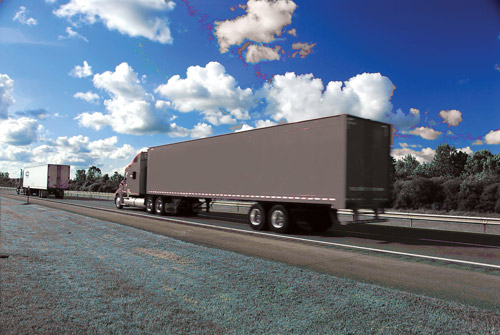Trucking Industry Challenges Impact Costs, Productivity
Trucking companies are facing numerous regulations, an aging workforce and tightening conditions for hauling capacity, all of which will have a significant impact on corporate supply chains.
Q4 2016

Some industry experts are further concerned that regulations such as Compliance, Safety, and Accountability (CSA), Electronic Logging Device (ELD), and Hours of Service (HOS) “have the potential to worsen the capacity crisis, increase transportation rates, and harm carrier productivity at a time when carriers expect financial difficulty,” reports PLS Logistics. These rules could bring an additional negative impact to profitability in the 10 to 18 percent range.
“With new e-log regulations and other laws impacting the trucking industry coming into effect in 2017, we expect these regulations will have a significant impact on corporate supply chains,” says Richard H. Thompson, international director for Supply Chain & Logistics Solutions at JLL. “They will eventually drive up trucking costs, which means higher transportation costs for corporate shippers.”
One of the most controversial regulations is HOS, which limits the average workweek to 70 hours, driving time to 11 hours, and on-duty hours to 14 — which impacts how operators move their trailers. “The clock now begins running at the beginning of the day, and does not pause,” says Christopher Steele, COO and North America president for Investment Consulting Associates. “It used to be that when a driver approached the facility, he or she could stop the clock while the trailer was being unloaded. Now, the clock does not stop. As a result, facility operators now need to increase parking/storage for trailers so that a driver can drop a trailer off, hook onto a new trailer, and go without losing much precious time.” With new e-log regulations and other laws impacting the trucking industry coming into effect in 2017, we expect these regulations will have a significant impact on corporate supply chains...they will eventually drive up trucking costs, which means higher transportation costs for corporate shippers. Richard H. Thompson, international director for Supply Chain & Logistics Solutions at JLL
Drivers Needed
Another major challenge for the trucking industry is a retiring workforce. With fewer truckers entering the profession, and the average age of a trucker being the mid-50s, these new regulations may exacerbate the lack of drivers.
“With the serious driver shortage we are currently facing, and the capacity crunch, it’s extremely important to keep drivers moving so they make money and get home as often as possible,” states PLS Logistics. “HOS rules could…not only increase operating costs for carriers, it could raise shipping prices for shippers and keep new drivers from entering the industry.”
“These regulations will make it even more difficult to find, recruit, and retain drivers,” agrees Thompson. “And, if the economy starts to turn up more rapidly, it creates serious issues for trucking capacity and drivers.”
Intermodal Intervenes
A practical alternative to these operational challenges for truckers is expanded intermodal. Intermodal freight options will likely be used more as trucking becomes more costly.
“Intermodal operations will continue to grow,” says Grant M. Miller, vice president in the Charlotte office for Colliers International. “Just this year CSX announced a new intermodal facility in Rocky Mount, N.C., and the South Carolina Ports Authority announced a new inland port in Dillon. I think we will continue to see more of these type of operations to help alleviate the dependence on trucking.”
Project Announcements
DDP Specialty Electronic Materials US Expands Midland, Michigan, Manufacturing Operations
01/30/2026
Aerospace Lubricants Expands Columbus, Ohio, Production Operations
01/30/2026
Radical AI Plans Brooklyn, New York, Materials Science Operations
01/28/2026
Germany-Based KettenWulf Plans Auburn, Alabama, Production Operations
01/28/2026
Frontieras North America Plans Mason County, West Virginia, Operations
01/28/2026
North Wind Plans Rosemount, Minnesota, Research Operations
01/27/2026
Most Read
-
The Workforce Bottleneck in America’s Manufacturing Revival
Q4 2025
-
Data Centers in 2025: When Power Became the Gatekeeper
Q4 2025
-
Speed Built In—The Real Differentiator for 2026 Site Selection Projects
Q1 2026
-
Preparing for the Next USMCA Shake-Up
Q4 2025
-
Tariff Shockwaves Hit the Industrial Sector
Q4 2025
-
Top States for Doing Business in 2024: A Continued Legacy of Excellence
Q3 2024
-
Investors Seek Shelter in Food-Focused Real Estate
Q3 2025



